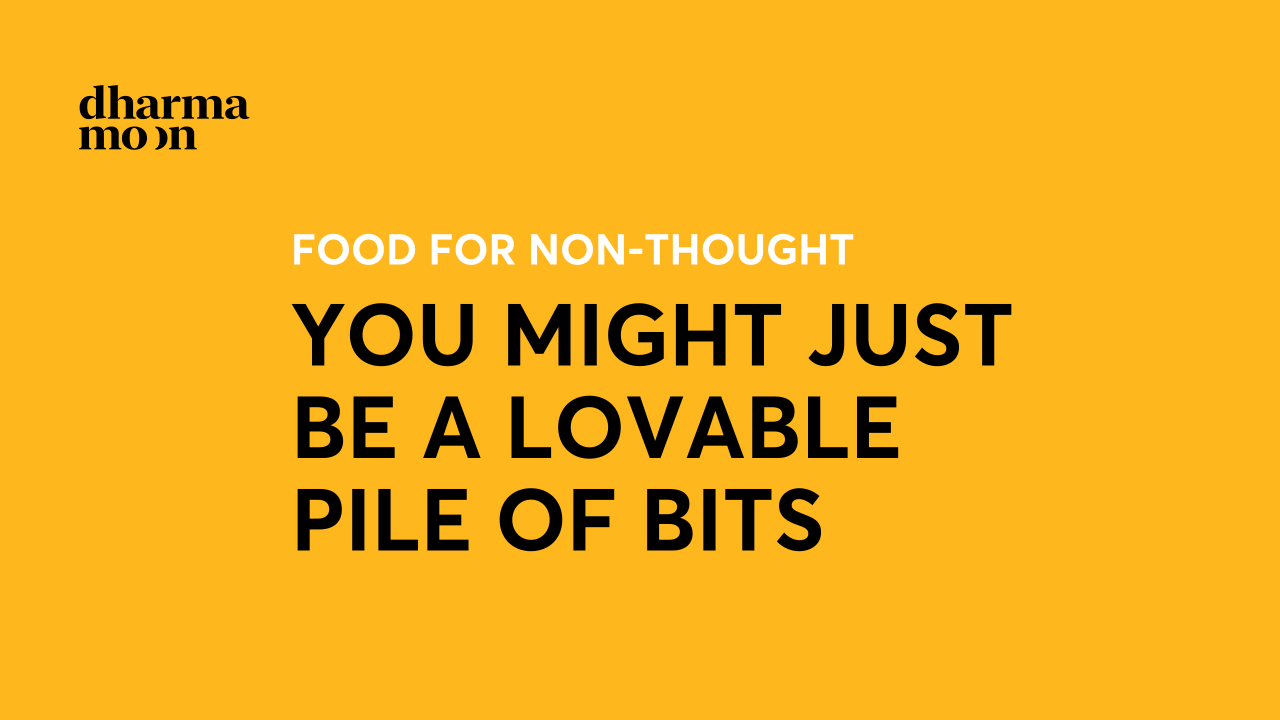You Might Just Be a Lovable Pile of Parts

Written by Noel Coakley
Let’s get something out of the way early: the idea of “no-self” is not some bleak nihilist horror show. It’s also not just a weird philosophy you need to pretend to understand to hang out with Buddhists. It’s actually something you can experience for yourself — and it turns out to be surprisingly liberating.
We usually think of the self as a solid thing. Something real and enduring. “This is me. These are my thoughts. This is my personality. This is what I like. These are my traumas.” And while there’s some functional truth to that on a relative level, if we look more closely, it gets a little squishy.
In Buddhist teaching, what we call a “self” is actually a collection of parts. The traditional list is called the five skandhas, which basically translates to “heaps” or “piles.” You’ve got:
-
form (your physical body),
-
sensation (pain, pleasure, neutral),
-
perception (how you interpret things),
-
formation (your habits and tendencies), and
-
consciousness (your basic awareness).
It’s kind of like a muppet. Or, more specifically, a Fraggle.
You remember Fraggles, right? They weren’t made of anything solid. They were made of fur, googly eyes, a few pieces of felt, maybe a marble or two — and somehow, that was enough to have an identity, a voice, a song. You could say a Fraggle is just a collection of parts, but when it dances across the screen, it seems pretty real.
We’re like that. We’re made up of components — none of which, when examined individually, are “me” in any ultimate way. But together, they animate into a story. A personality. A life. A muppet-like miracle of appearance.
When you sit in meditation and observe the mind closely, the sense of self starts to loosen. You notice thoughts arise, feelings come and go, body sensations shift and morph. There’s no solid “I” behind it all — just movement, change, and awareness.
And that’s the punchline: we’re not trying to destroy a self. We’re just getting curious about what we’re actually made of. And in doing so, we might suffer a little less. We are a little less clingy and identified with the experience. We aren’t locked into the limited story of who/what we are.
So next time the question “Who am I?” arises, consider this: you might just be a very lovable pile of skandhas. Or maybe a Fraggle.
